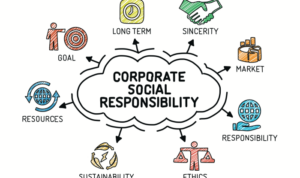Small business insurance is crucial for safeguarding your business from potential risks and uncertainties. From understanding the types of coverage to factors to consider when choosing a policy, this guide will help you navigate the world of small business insurance with confidence.
What is Small Business Insurance?
Small business insurance is a type of coverage designed to protect small businesses from financial losses due to unexpected events. It is essential for small businesses to have insurance to safeguard their assets and operations.
Types of Coverage in Small Business Insurance
- General Liability Insurance: Covers third-party injuries, property damage, and lawsuits.
- Property Insurance: Protects business property, equipment, and inventory against damage or theft.
- Commercial Auto Insurance: Covers vehicles used for business purposes.
- Workers’ Compensation Insurance: Provides benefits to employees injured on the job.
- Professional Liability Insurance: Protects against claims of negligence or errors in professional services.
Key Benefits of Small Business Insurance
- Financial Protection: Helps cover the costs of lawsuits, property damage, or other unforeseen events.
- Legal Compliance: Some types of insurance are required by law, such as workers’ compensation.
- Peace of Mind: Knowing that your business is protected can reduce stress and allow you to focus on growth.
- Reputation Management: Having insurance can enhance your business’s credibility and trustworthiness.
Types of Small Business Insurance
When it comes to protecting your small business, having the right insurance coverage is crucial. Here are some of the different types of insurance options available for small businesses, along with the specific risks they cover and examples of scenarios where each type would be essential.
General Liability Insurance
General liability insurance helps protect your business from claims of bodily injury, property damage, and other related risks. This type of insurance can cover legal fees, settlements, and medical expenses if a third party is injured on your business premises or if your business causes damage to someone else’s property.
- Scenario: A customer slips and falls in your store, resulting in injuries and medical expenses. General liability insurance would help cover the costs associated with the claim.
- Scenario: Your product causes harm to a customer, leading to a lawsuit. General liability insurance can help cover legal fees and potential settlements.
Professional Liability Insurance
Professional liability insurance, also known as errors and omissions insurance, protects your business from claims related to professional mistakes or negligence. This type of insurance is essential for businesses that provide services or advice to clients.
- Scenario: A client sues your business for financial losses due to an error or omission in your work. Professional liability insurance would cover legal fees and damages.
- Scenario: A customer accuses your business of failing to deliver the promised results, resulting in a lawsuit. Professional liability insurance can help protect your business from financial losses.
Property Insurance
Property insurance helps protect your business property, including buildings, equipment, inventory, and furniture, from risks like fire, theft, vandalism, and natural disasters. This type of insurance can cover the cost of repairing or replacing damaged property.
- Scenario: A fire breaks out in your office, destroying equipment and inventory. Property insurance would help cover the cost of replacing the damaged items.
- Scenario: Your business property is damaged by a severe storm. Property insurance can help cover the repair or replacement costs.
Factors to Consider When Choosing Small Business Insurance

When selecting insurance policies for a small business, there are several key factors that business owners should consider to ensure adequate coverage and protection. The size and nature of the business play a crucial role in determining the insurance needs, and consulting with an insurance agent or broker can provide tailored advice based on specific requirements.
Business Size
- Consider the size of your business, including the number of employees, annual revenue, and physical assets. Larger businesses may require more comprehensive coverage to protect against potential risks.
- Assess the growth potential of your business to ensure that your insurance policy can accommodate any expansions or changes in operations.
Nature of Business
- Identify the specific risks associated with your industry and tailor your insurance coverage to address these risks effectively.
- Consider the location of your business and any environmental factors that may impact your insurance needs, such as natural disasters or local regulations.
Consultation with Insurance Professionals
- Seek advice from insurance agents or brokers who specialize in small business insurance to gain a better understanding of the coverage options available.
- Discuss your unique business requirements and potential risks to determine the most suitable insurance policy for your specific needs.
Cost and Affordability of Small Business Insurance

When it comes to small business insurance, the cost is a crucial factor that can significantly impact a company’s financial health. Understanding the typical cost range for small business insurance premiums, implementing strategies to manage insurance costs effectively, and grasping the concept of risk assessment are essential for small business owners.
Typical Cost Range for Small Business Insurance Premiums
The cost of small business insurance premiums can vary depending on various factors such as the size of the business, the industry it operates in, the location, the coverage needed, and the level of risk associated with the business. On average, small businesses can expect to pay anywhere from a few hundred to several thousand dollars annually for insurance coverage.
- General Liability Insurance: Typically ranges from $500 to $2,000 per year.
- Professional Liability Insurance: Can cost between $500 to $5,000 per year.
- Business Owner’s Policy (BOP): Prices vary but generally fall between $500 to $3,500 annually.
- Workers’ Compensation Insurance: Costs depend on the number of employees and the level of risk, ranging from a few hundred to several thousand dollars per year.
Strategies for Managing Insurance Costs Effectively
To manage insurance costs effectively, small businesses can consider the following strategies:
- Shop around and compare quotes from multiple insurance providers to find the best rates.
- Bundle insurance policies with the same provider to potentially qualify for discounts.
- Implement risk management practices to reduce the likelihood of claims and lower insurance premiums.
- Review and update insurance coverage annually to ensure it aligns with the business’s needs and risks.
Risk Assessment and Insurance Pricing
Risk assessment plays a crucial role in determining insurance pricing for small businesses. Insurance providers evaluate the level of risk associated with a business based on factors such as the industry, location, claims history, and business operations. The higher the risk, the higher the insurance premiums are likely to be. By implementing risk management strategies and maintaining a strong safety record, small businesses can potentially lower their insurance costs over time.





